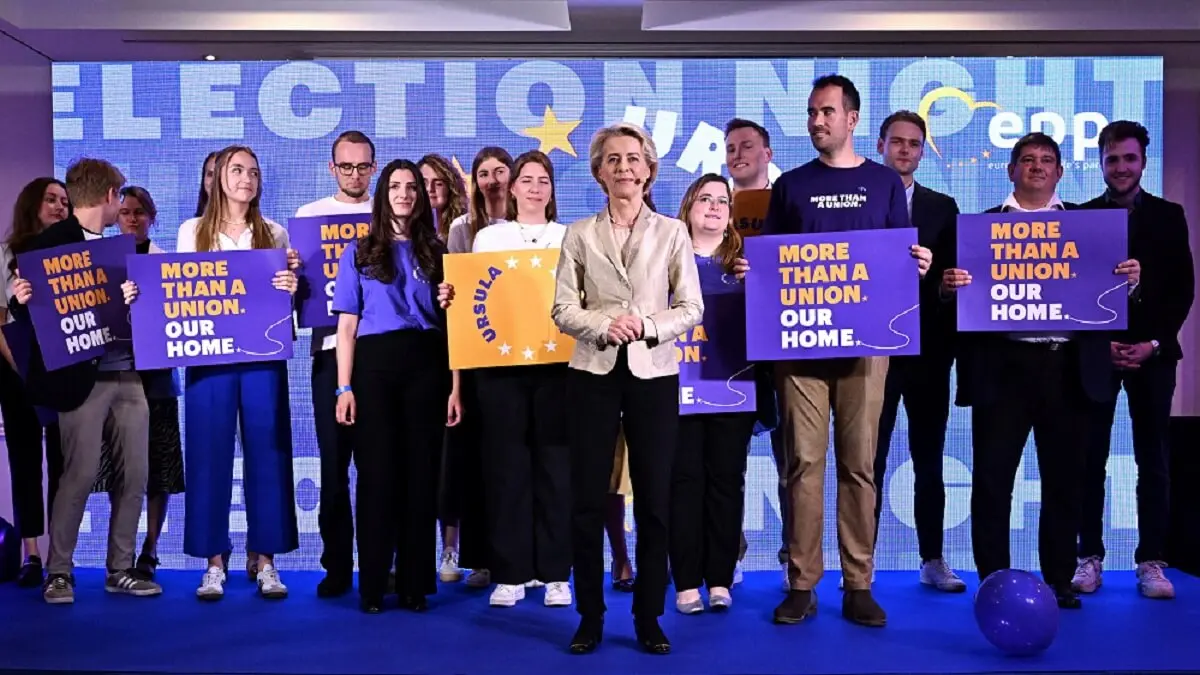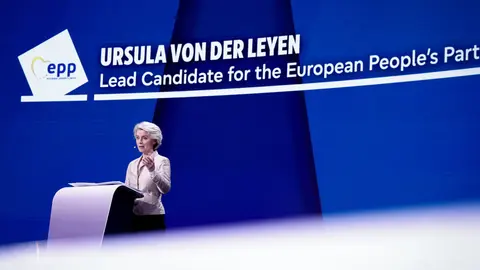European convulsion ‘ma non troppo’

Taken together, the triple alliance of Populares, Social Democrats and Liberals, who have been the backbone of the previous legislature, have sufficient volume to repeat majorities in the crucial votes that affect the 450 million citizens of the 27 EU member states. But it would clearly be suicidal not to take into account the reasons why the nationalist and sovereigntist right-wingers have made such substantial gains. To brand them as Eurosceptics is already a simpleton's nonsense, given that these groups are not calling for their respective countries to leave the EU, especially after seeing the havoc that Brexit has caused in ‘Perfidious Albion’, but rather to change the course of the EU government. An aspiration that has as much legitimacy as that of any other political group that respects the laws and the rules, which by the way has numerous exceptions in many of those whose mouths are full of polarising, divisive slogans and full of exclusionary walls.
Two issues among many others will require a great deal of dialogue between the formations of the Europarliament in order to temper the exacerbated and growing anger in the fields and cities of European countries: the Green Pact and Immigration. At this point, with the exception of a few brainless people, no one denies the existence of climate change and the human catastrophe it could lead to. However, in view of the behaviour, at the very least, of the emerging powers' lack of solidarity in their polluting production, Europe cannot and should not be naïve and adopt the quixotic attitude of fighting alone against serious climate change, while at the same time being the propitiatory victim of those who do not do so, or do not do so with the same commitment and intensity as Europeans.
As for immigration, the big elephant in the room that the most exquisite do not want to talk about, the reality of the growing floods of millions of uncontrolled people into Europe can no longer be ignored. Behind every one of them there is of course a drama and more than a few moving stories. This is no obstacle to recognising that the solution does not lie in indifferently observing the massive influx of these people into EU territory, and increasing their own vulnerability by throwing them onto the streets and into the fields without the means to survive. Denying that such dramatic and numerous situations increasingly lead to crime is not goodism, it is stupidity, because hiding the problem does not mean that it will magically disappear, and it will have to be confronted.
The national readings of the elections and the corresponding reactions also show the diversity of Europe. The brutal defeat of President Emmanuel Macron in France by the leftist Jordan Bardella led to the immediate dissolution of the National Assembly. In Germany they may be thinking about a similar outcome after the new setback experienced by the social democratic chancellor Ofaf Scholz, defeated not only by his Christian Democrat opponents of the CDU-CSU but also by the extreme right-wing Alternative für Deutschland (AfD).
Giorgia Meloni, whom the Spanish left-wing media continue to describe as a ‘fascist’ in sepia, has made her party the most voted party in Italy, with the additional merit of having symbolically headed the candidacy herself, thus demonstrating that it is she, as the undisputed leader of the EU's third largest economic power, with whom Ursula von der Leyen will preferably have to come to terms - everything seems to point to her repeating her mandate - in order to conclude far-reaching European agreements that go beyond a mere arithmetic majority.
And, finally, in the anomalous Spain, there is a desperate attempt to sell the story that a PSOE that has gone from winning 9 seats and 13 points over the PP, to being overtaken by the latter by 2 seats, four points and 700,000 votes, with respect to the previous European elections of 2019, is holding up very well. Put in terms of a plebiscite, there seems to be no doubt, unless we are talking about Tezanos-type analysts, that the majority of Spanish voters have not pardoned corruption, misgovernment or unconstitutional amnesties. From the first post-electoral moment after the election, opinion and talk-show pundits were selling the presumed privileged position of President Pedro Sánchez to lead the European Socialists in the distribution of EU institutional posts. It remains to be seen, however, whether, in the new Europe that will emerge from these elections, a plus of power will be granted to someone who, despite the immense manna of European funds, has not achieved the main purpose for which they were created: the transformation of Spanish society, turning it into a modern country with structures prepared to face a future that is more competitive and tougher than ever.
As comfortable and pleasant as the Peronist-style subsidies and benefits may be, in Brussels they are well aware of the situation, and such a socio-economic model, otherwise asphyxiating and increasingly interventionist, is very much at odds with that of free enterprise and market freedom, which is one of the fundamental pillars of the Union.


